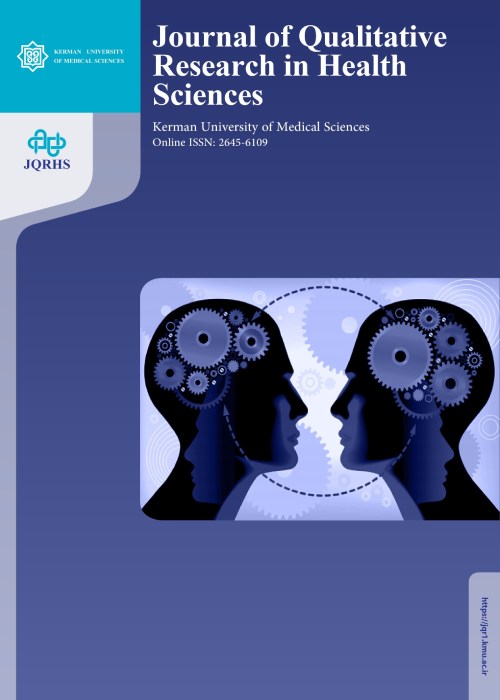Barriers and Incentives of Self-care from the View of Diabetic Patients and their Service Providers Using the Social Marketing Model in Ardakan, Iran
Abstract:
Introduction
Diabetes is the most common disease worldwide. The complications of diabetes cause economic damages and decrease patient's and their familie's quality of life. Self-care is an important process in diabetes control. On the other hand, maintaining the blood glucose level at a favorable level is challenging for both the patients and the physician. This is due to systemic and individual barriers of diabetes self-care. Thus, the present study aimed to explore the barriers and incentives for self-care. Method
The present study was conducted as a qualitative study with focus group discussion (FGD) (3 sessions for patients and 3 sessions for health care providers separately). Private interviews were conducted with 25 patients and 5 health care providers until data saturation. The interviews and FGDs were transcribed and analyzed using content analysis method. Results
In analyzing the data, two main themes including barriers and incentives for self-care from the view of patients and health care providers were extracted. Based on the social marketing model, these themes were divided into four subthemes of product, place, price, and promotion. The study subjects specified the different causes of performing or not performing self-care in different areas such as exercise, nutrition, regular medical exams, and appropriate medicine use. The cost and availability of some services, physical barriers and their limitations, nonscientific health care delivery, unsuitable health care services for diabetic patients, and lack of health care packages and guidelines were reported as barriers. Moreover, successful experiences of patients and health care providers, and providing self-care facilities were reported as incentives. Conclusion
Market analysis in diabetes self-care showed that comprehensive and systematic programs for diabetic patient care, management protocol for physicians and specialists, and nutritional recommendation, traditional medicine, and exercise are more beneficial when coordinated with economic power, environmental factors, and beliefs of diabetic patients and literacy promotion.Keywords:
Diabetes , Social marketing , Self , care , Barriers , incentives , Qualitative research
Language:
Persian
Published:
Journal of Qualitative Research in Health Sciences, Volume:3 Issue: 4, 2015
Pages:
317 to 330
magiran.com/p1366502
دانلود و مطالعه متن این مقاله با یکی از روشهای زیر امکان پذیر است:
اشتراک شخصی
با عضویت و پرداخت آنلاین حق اشتراک یکساله به مبلغ 1,390,000ريال میتوانید 70 عنوان مطلب دانلود کنید!
اشتراک سازمانی
به کتابخانه دانشگاه یا محل کار خود پیشنهاد کنید تا اشتراک سازمانی این پایگاه را برای دسترسی نامحدود همه کاربران به متن مطالب تهیه نمایند!
توجه!
- حق عضویت دریافتی صرف حمایت از نشریات عضو و نگهداری، تکمیل و توسعه مگیران میشود.
- پرداخت حق اشتراک و دانلود مقالات اجازه بازنشر آن در سایر رسانههای چاپی و دیجیتال را به کاربر نمیدهد.
In order to view content subscription is required
Personal subscription
Subscribe magiran.com for 70 € euros via PayPal and download 70 articles during a year.
Organization subscription
Please contact us to subscribe your university or library for unlimited access!



